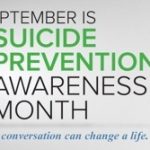I think about my 99 year old grandmother who passed away a year and a half ago. She and I had a deep love for each other and would always joke that we were kindred spirits. I could see the spirit that was beyond her eyes- ageless and genderless. (If anything, inside she was an 11 boy considering the practical jokes she played!) I imagined the grief would overcome me and be endless and that was not the case. When she passed away, I kept reading Rumi’s poem The Guesthouse visualizing grief as a visitor knocking at the door. This guest would knock randomly and unexpectedly too, as grief often comes in waves. I could choose to avoid my guest but he would just knock louder until I would let him in. So I welcomed him and surrendered fully to the experience of grief. Through that experience, I awakened to the truth that pure love exists beyond time and space and that my grandmother now actually lived within me. Little things that I noticed that she would do, I caught myself doing, like making up songs to sing and bringing humor more fully into life…the best parts of her were within me. When I really grasped that not only in my head but in my heart, the grief disappeared. She’s as close to me as my own beating heart. So if this is a time of grief for you on any level, how can you allow yourself to let go into the grief and trust the process of healing? Perhaps its giving yourself 30 minutes or an hour per day to really be present to the grief. What qualities of your loved one can you now see in yourself? How can you channel that grief energy into a way to honor their life?
Meditation: Killing of the "Self"?
I pose that radical question to you. Meditators often see the spiritual awakening that is, in essence, the inevitable outcome of a long-term practice of meditation as the “death of the self” or the “death of the ego.” Like a caterpillar that must die before becoming a butterfly, the “ego self” of human beings must die in order to become “awakened” or “enlightened.” This process is often experienced as an unraveling of the self or a total surrender into the vast unknown.
I worked with a client deep in the throws of grief weeks after the death of her spouse; she had two small children and was working full-time to put food on the table. She wanted to learn how to meditate in the midst of her crisis. I introduced her to an exercise entailing observing her thoughts. She stated that her perpetual thought at the time was, “I want to kill myself.” For purposes of the exercise in observing her mind, I enabled her to see that the thought “I want to kill myself” (although capable of triggering the emotions of despair) was a thought just as much as “what will I have for dinner.” (It is important to note that every therapist must always take appropriate measures to keep clients safe in situations where there is a threat of harm to one’s physical self or others and to take necessary actions to ensure safety, as I did with this client).
Yet, “I want to kill myself,” is felt and often said by individuals who feel at the end of their rope, desperate, alone, cannot go a step further on this path or in this life or with the experience of certain emotions. Further, there is an experience of being “done” with the self or this life following a willingness to surrender to the vast unknown. Looking still deeper, we remember the words of various meditation gurus/teachers who have embarked on the journey of regular meditation as a result of feeling that they could not continue on the path they were on and were willing to seek an answer to the age old question, “Is there more to life than just this?” Many of the well-known enlightened gurus/teachers we read about share a similar story of hitting a wall of despair — becoming so disenchanted with their shallow existence, not knowing which door to open or knock on (or even knowing that there was a door on which to knock). Then, on the other side of that despair, a rebirth or spiritual awakening arises.
So, as it is in nature, death gives birth to something new. Perhaps it’s awakening to — or awareness of — the preciousness or true value of life in the midst of a loved one’s death. Maybe it’s the desire to kill off old patterns or ways of one’s self that are no longer working to then provide for the awakening to our most authentic selves. Perhaps it’s the shedding of relationships or friendships that no longer serve us in order to make way for new, vibrant and healthier connections with others. So, is there a part of yourself or your life that you want or need to “kill off” in order to reach your full potential as a human being? Perhaps we can invite this concept of “death of ego self” (as opposed to physical death) into our lives as a pathway to creating new beginnings in our life and doorways to a richer and more fulfilling life.
(Disclosure: The information and thoughts provided in the above article are not, in any way, to be construed as either encouragement or permission to do bodily harm of any kind to one’s self or to others. If anyone reading this article has such an urge or intent, it is imperative that he or she call 911 Emergency or 211 Mobile Crisis Hotline without delay. Short or long term psychotherapy sessions can also be a resource for individuals experiencing disturbing thought or emotions).
Suicide Prevention
September is National Suicide Prevention Month.
Whenever I think about suicide, what it means to me, how I feel about it, the word that always comes to mind is shame. I don’t think you can talk about suicide without talking about shame. I have been heavily immersed in Brene Brown’s research work on shame and vulnerability and the more I learn about it, the more open my eyes are to seeing it everywhere I go. Everyone I have ever known that has struggled with suicidal thoughts or gestures is shrouded in shame for one reason or another—they don’t feel good enough, worthy enough, pretty enough, smart enough, together enough…they feel too broken, undeserving of help or hope, and lost in a sea of “if only’s.”
The thing that strikes me in reading Brene Brown’s work and in applying this to my understanding of suicide, is just how preventable it is. I have always known and believed that, but understanding the role shame plays in it has shed new light on the word prevention. I think of someone who is suicidal as someone who has been walking a path of shame for weeks, months, sometimes years, all leading to feeling suicidal. The path is long and winding and with many stops along the way. Many chances for hope. Many chances for someone to reach out and offer a different path. So why? Why do we lose over 40,000 Americans to suicide each year?* Why is there a suicide attempt every 12.95 minutes?* Why are there approximately 1 MILLION suicide attempts made annually?*
Because of shame. Because of our lack of understanding of shame. Because of our fear of talking about shame.
We are infiltrated on a daily basis by messages of perfection, messages that encourage shame and discourage self discovery. We are plagued by the disease of comparing ourselves to others and constantly feeling not good enough. We think in terms of social media Likes and want to make sure we present our best looking, happiest, and most connected selves on Facebook, Instagram, and twitter. I have clients as young as 14 coming into my office completely depressed and hopeless because of something someone at school posted on Twitter, because their friends get more Likes than them, because someone made fun of their profile picture. The world has become so completely technologically connected that we have lost touch with what actual connection means. When I go to the store, or for a walk, or to get gas, I am always struck by what people are doing while they are waiting or walking or standing. They are on their phones. Not looking up. Not engaging. Not connecting to the world around them. How on earth can we be our most authentic selves if we are only putting what we think is our most “perfect” self out into the world via social media? That’s a lot of pressure. And it is incredibly lonely.
Bene Brown writes in The Gifts of Imperfection, “Our sense of worthiness—that critically important piece that gives us access to love and belonging—lives inside of our story.” Our story can be found in our imperfections and our vulnerabilities. If we don’t own our story, we flounder. We float around looking for something to grab onto to give us a sense of purpose and belonging. Without it the path of shame and not being enough becomes a path leading to hopelessness, helplessness, and feelings of not wanting to exist any more.
Suicide prevention month should be about putting down our devices and connecting with the people in our lives. Really connecting. That means sharing our stories, embracing our imperfections, and allowing the light to wash out the darkness that is shame.
If you or someone you know is struggling please call us. We can help. And you are not alone.
*Source: American Foundation for Suicide Prevention
Resources:
Depression and Mutual Need
“We are all in this together and there is no therapist and no person immune to the inherent tragedies of existence”.
I read this passage from Irvin Yalom’s Book titled The Gift of Therapy and it touched something within me deeply. It was the reason I began my career in social work. The reason was to reach people, to join together to help create change and to help ease some of the burden that lies in being human. A passion was ignited within me at a young age to reach people in all walks of life and to do so in a meaningful and honest way. The truth about being a therapist is that it is not selfless work. There is little in this world that is. Being a therapist is a calling and therefore fills a deep need within those of us who do the work each day. It fills a need to connect and a need to help facilitate change. Just as joy and laughter are a beautiful part of life, so is suffering. Most of us need support on our journey to figuring out what to do with that suffering. I am not immune to that suffering, in fact it is because I have been touched by it that I am where I am today and am able to do the work that I do. The things I am reading in the news every day, the stories I am hearing from people in my community, all speak to the fact that while the dialogue about mental health is catching, it needs constant fuel to ensure that it doesn’t burn out. It is this dialogue that will save lives if we keep it going. But we must keep it going.
Someone asked me the other day if depression is for life. “Is it like addiction? Once you have it, you have it forever?” Depression is often at the forefront of our discussions regarding mental health. The reason is clear: it is so prevalent and relevant. While this is encouraging in that it means the dialogue is opening up surrounding the subject, it is often not being used correctly which is problematic for those suffering from depression. “I’m depressed. It’s just who I am.” Believe it or not I have heard this more than once. My question is always, “what does that mean to you, what is depression to you?” It is shocking how frequently the response is: “I’m not sure”. The word has become a catch all for things not going well in our lives. When this is tied to the stigma that is still woven throughout our society surrounding depression, it creates even more unrest in someone believing themselves to be depressed. The belief is I am depressed therefore I am broken. I can instantly feel the hope drain from the person sitting in front of me as they share this with me. But depression, like all mental health issues, is far from hopeless. Being broken is part of being human, we are born broken and it isn’t until death that we become free from the brokenness. Feeling sad is not depression. We all feel sad sometimes. It is one of our most natural and human emotions. Depression goes deeper than sadness. Depression resides in ones mind and heart like a beast, robbing the world of beauty, light, joy, and hope. The less we talk about it, the greater it grows, the longer it lingers, the more painful it becomes.
Jamie Tworkowski writes in his book If You Feel Too Much, “We all have our past. We all have our pain. We will all know ghosts from time to time. But if our life is like a building, then we should open our doors to let some people see inside. Into our darkest places, into those rooms that hold our fears and dreams.” Depression whispers to stay silent, to stifle your story, to not ask for help. The courage comes in doing the opposite. When I am asked what I do and the type of people I see, my initial reaction is to always respond by saying, “I see people like you. And I listen to their stories.” I am a therapist, but first and foremost I am also a human with my own story and my own pain and my own places that are broken. In the beginning I thought that made me less worthy of helping, listening, supporting, but I know now it actually makes me more capable. Living honestly is one of the greatest challenges we are faced with on a daily basis. We ignore our pain, we push away our discomfort, we hide from depression and anxiety and feelings of insecurity. It is when we step into the light, when we honor the broken parts of ourselves as much as the strong parts, that we become whole. Only then are we able to find true connection, true healing, and true peace.
Mutual need is a concept that rings true not only in my work as a therapist but also in my work as a human. It is when we free ourselves from the fear of being in pain, the fear of being broken, the fear of facing our demons, that we begin to see clearly. We are all in pain at some point in our lives. If we join together in that, the pain lessens, the burden lightens, and the darkness wanes.



